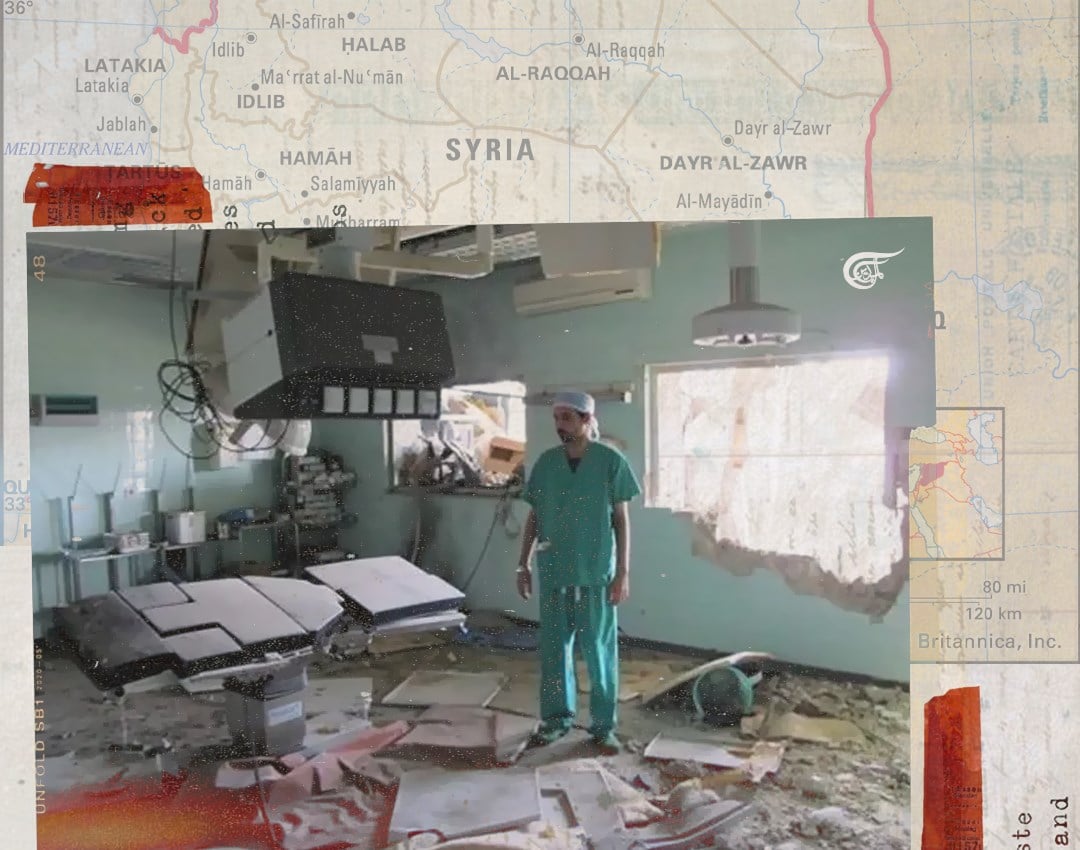Syrian health sector infrastructure suffered significant damage as a result of the war
As of 2020, 110 health units out of the 1,864 affiliated with the Ministry of Health were completely destroyed; a rate of 5.9%.
-

Syrian health sector in shambles (Al Mayadeen English, Arwa Makki)
According to the latest official data, as of 2020, 110 health units out of the 1,864 affiliated with the Ministry of Health were completely destroyed; a rate of 5.9%, while 368 health units were partially damaged, amounting to about 19.7%.
Furthermore, 378 ambulances were destroyed out of a total of 801 that existed before the war, nearly 47.19%.
On the other hand, government spending on the health sector during the pre-war years reached more than 1.6% of the total gross domestic product, but this spending declined during the war at a 1.1% annual pace.
According to official data, the acute shortage of medical services has caused an increase in disease rates and a decrease in immunity among Syrians.
Some epidemics that vanished decades ago have reappeared, such as polio, cholera, and tuberculosis.
It has also become more difficult for women to access reproductive health services.
This has led to a decrease in the number of births conducted under specialized supervision, and an increase in the mortality rate of newborns during the first month of birth, reaching 11.8 per thousand.
According to the World Health Organization, the average life expectancy of Syrians decreased from 72 years to 60 years for men and from 75 years to 70 years for women.
Large numbers of Syrian doctors emigrate to work abroad
As a result of the war and the US sanctions imposed on Syria, the wages and standard of living of Syrian doctors declined, which prompted them to emigrate.
According to a recent report published by a German medical journal, Syrian doctors were ranked first in the number of foreign doctors in Germany in 2022, as their number reached 5,339 doctors.
In this context, the head of the Syrian Doctors Syndicate, Ghassan Fandi, told Al Mayadeen English, "By the end of 2023, the number of the emigrated medical staff has reached more than 16,000, and 30% of anesthesiologists in Syria have traveled, while the remaining 70% are close to retirement age. We indeed have a large number of new graduates, but most of them come daily to our syndicate to obtain the necessary documents for their travel outside the country."
For his part, the head of the Damascus Countryside Doctors Syndicate reiterated, "There are no thoracic surgeons in the entire governorate, and there is only a vascular surgeon, while the governorate needs a minimum of 10-12 doctors of this specialty."
As for the acute shortage of anesthesiologists, he confirmed, "For more than five years, there has not been a single resident physician specializing in anesthesia in the Damascus countryside governorate, and we need at least 40 anesthesiologists to fill the acute shortage."
Syrian citizens forced to choose between food or medicine
In 2023, the health situation in Syria worsened further as a result of the US drastic sanctions, preventing the sale of medical equipment or spare parts to a large number of public and private Syrian hospitals.
This was denounced by the Syrian Foreign Ministry, stressing that the allegations promoted by the American administration regarding the existence of exceptions for humanitarian purposes from these procedures are baseless.
Targeting hospitals that provide healthcare to millions of Syrians, including the University Children’s Hospital, requires urgent action from the United Nations, the World Health Organization, and the International Committee of the Red Cross to put an end to these practices.
Today, thousands of Syrian patients are experiencing agony and distress, some of whom lost their lives due to their inability to obtain appropriate treatment, the lack of advanced equipment, and the loss of high-quality medicines.
Governmental and private hospitals also suffer from difficulty in obtaining their medical supplies and equipment due to Western companies’ fear of being exposed to American sanctions, which forces Syrian companies to import through a third country, thus resulting in high costs and delays in the receiving period.
On the other hand, there is great difficulty in financial transfers through the global SWIFT system to import raw materials for the pharmaceutical industry in Syria.
There are also major problems in importing some types of medicines, such as cancer medicines, dialysis medicines, and others, as well as packaging materials that are not manufactured locally, such as vials, ampoules, and laboratory reagents that are used to test the quality and purity of medicines.
Drug prices are still soaring beyond the inflation rate. Medicines are paid in local currency that is greatly depreciated. Consequently, many Syrian families had to choose between the priority of spending on securing food supplies or purchasing medicine. Before 2011, these cases were limited to 1.5% of the average family spending.

 Sara Salloum
Sara Salloum
 5 Min Read
5 Min Read











